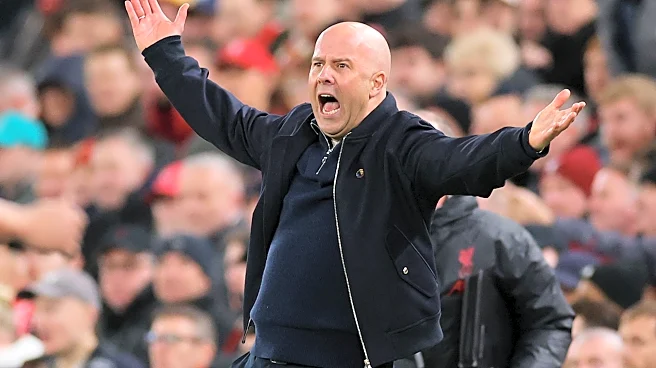What is the story about?
What's Happening?
Russian Foreign Minister Sergei Lavrov addressed the United Nations General Assembly, emphasizing that Russia does not intend to attack Europe but will respond decisively to any aggression. This statement comes amid heightened tensions between Russia and NATO, following unauthorized flights into NATO airspace, which the alliance attributes to Russia. NATO jets have recently downed drones over Poland, and Estonia reported Russian fighter jets entering its territory. Russia denies these allegations, attributing the incidents to Ukrainian signal-jamming. Lavrov reiterated that Russia faces threats and any aggression against it will be met with a decisive response. The speech occurs more than three years into Russia's war in Ukraine, which has been widely condemned by the international community.
Why It's Important?
Lavrov's statements at the U.N. highlight ongoing geopolitical tensions between Russia and NATO countries, particularly in the context of the war in Ukraine. The incidents involving airspace violations have raised concerns about potential escalations in Europe. NATO's warning to Russia underscores the alliance's commitment to defending its members against breaches. Lavrov's remarks also reflect Russia's stance on its security concerns, particularly regarding NATO's eastward expansion. The situation has implications for international relations, with potential impacts on diplomatic efforts to resolve the conflict in Ukraine and broader security dynamics in Europe.
What's Next?
The international community will likely continue to monitor the situation closely, with NATO potentially increasing its defensive measures in response to further airspace violations. Diplomatic efforts may be pursued to address the tensions and prevent escalation. The ongoing war in Ukraine remains a critical issue, with potential developments in peace negotiations or military actions influencing the geopolitical landscape. Stakeholders, including political leaders and international organizations, may engage in discussions to find solutions and mitigate risks associated with the conflict.
Beyond the Headlines
Lavrov's speech also touched on the broader implications of the conflict in Ukraine, including the potential for increased tensions between Russia and Western countries. The situation raises questions about the future of international diplomacy and the role of major powers in shaping global security dynamics. The conflict has ethical and humanitarian dimensions, with significant impacts on civilian populations and regional stability. The international community may need to consider long-term strategies to address these challenges and promote peace.
















